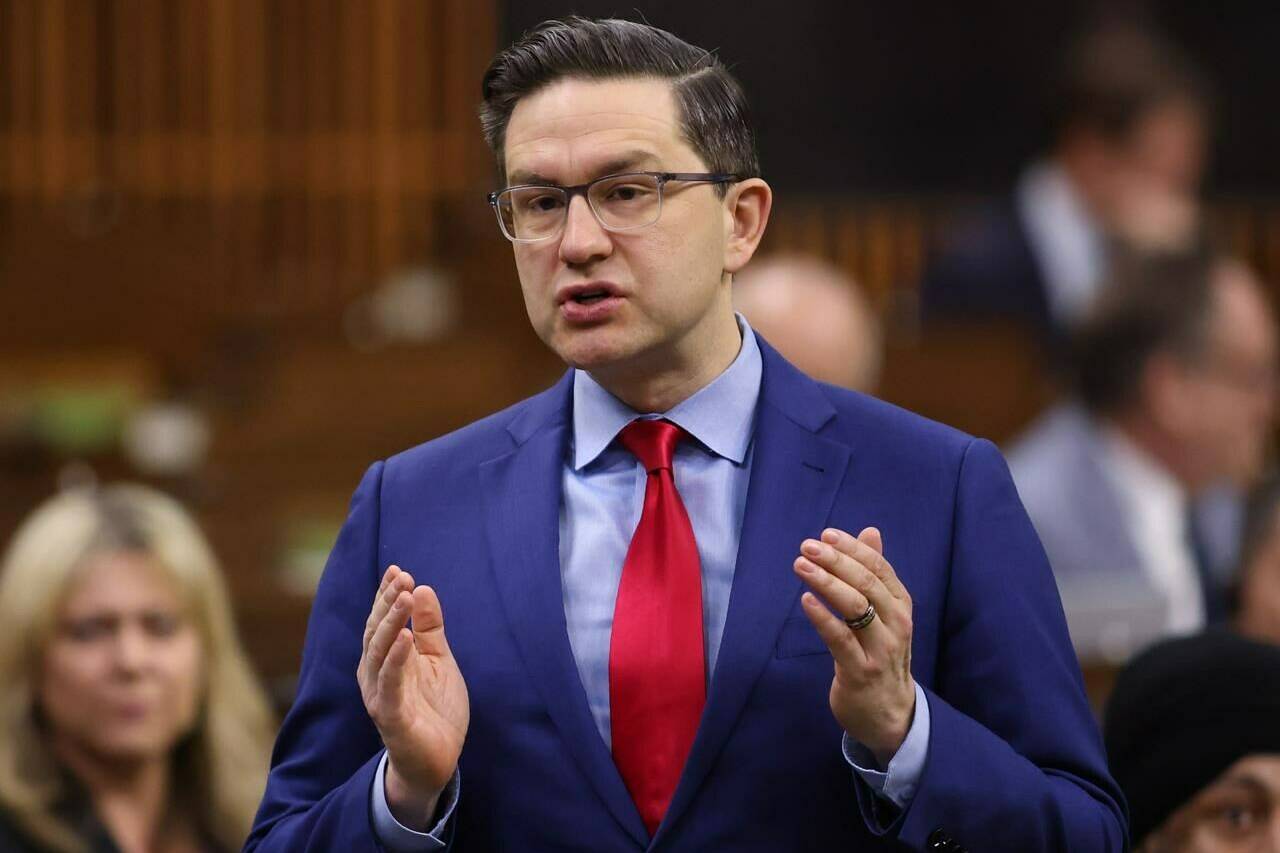The Opposition Conservatives are asking Twitter to apply a “government-funded” label on accounts associated with the CBC, even as other broadcasters decry the tag for not making clear their editorial independence.
On Tuesday, Conservative Leader Pierre Poilievre tweeted a copy of a letter addressed to the company making the request.
In the letter, Poilievre asked that the label be applied to CBC’s English “news-related” accounts. But he did not mention Radio-Canada, the broadcaster’s French-language arm.
The social-media giant currently defines “government-funded” media as outlets that “may have varying degrees of government involvement over editorial content.”
Poilievre said he believes that applies to CBC.
But CBC said in a statement on Wednesday that is “clearly not the case,” adding that it cannot comment on the motives behind Poilievre’s letter.
“As every Canadian knows, CBC/Radio-Canada is publicly funded. Its editorial independence is protected in law in the Broadcasting Act,” a spokesperson for the broadcaster said.
Twitter added the descriptor to BBC and National Public Radio accounts last week after initially labelling them as “state-affiliated” —a term usually reserved for government-run propaganda outlets in countries such as Russia and China.
Twitter changed BBC’s “government-funded” label to “publicly funded” on Wednesday, the third change in a week.
Elon Musk, who owns the platform, had promised the shift in approach during an interview with BBC on Twitter Spaces on Tuesday.
Musk said that if Twitter used “the same words that the BBC uses to describe itself, that presumably would be OK,” and that he respects the broadcaster, which is funded by the British public through a licensing fee.
FRIENDS, a public broadcasting advocacy group, said that Poilievre would turn to Musk’s Twitter to “protect Canadians against disinformation” is a “laughable” idea.
“What’s not funny is that the person running to be the leader of one of the most democratic countries in the world has zero qualms about comparing CBC/Radio-Canada to the likes of Russia’s Sputnik TV,” said Marla Boltman, the group’s executive director, in a statement.
“These tactics are irresponsible, dangerous and undermine the democracy that public institutions like CBC/Radio Canada are desperately trying to uphold.”
NPR announced Wednesday that it would quit using Twitter after its accounts were inaccurately labeled. The United States public radio outfit said its credibility was being undermined by the platform “falsely implying that we are not editorially independent.”
NPR does receive U.S. government funding through grants from federal agencies and departments, along with the Corporation for Public Broadcasting. But the company said that accounts for less than one per cent of NPR’s annual operating budget.
“We are not putting our journalism on platforms that have demonstrated an interest in undermining our credibility and the public’s understanding of our editorial independence,” a spokesperson for NPR said Wednesday in a statement.
“We are turning away from Twitter but not from our audiences and communities. There are plenty of ways to stay connected and keep up with NPR’s news, music and cultural content.”
It’s the first major news outlet to make such a decision following Musk’s takeover of Twitter last year, with the social media company facing new scrutiny over how it filters out the spread of false information.
The platform also recently stripped the New York Times of its verification check mark, with the newspaper saying it would not pay a monthly fee to maintain it.
CBC said it hasn’t made a decision yet on whether it will continue to use Twitter if the company decides to label it as “government-funded,” saying it cannot comment on hypotheticals.
In 2021-22, the CBC received more than $1.2 billion in government funding, a decrease from about $1.4 billion in 2020-21.
—Mickey Djuric, The Canadian Press
READ MORE: Twitter pulls check mark from main New York Times account
Conservative Party of CanadaFederal PoliticsMedia industrySocial Media

